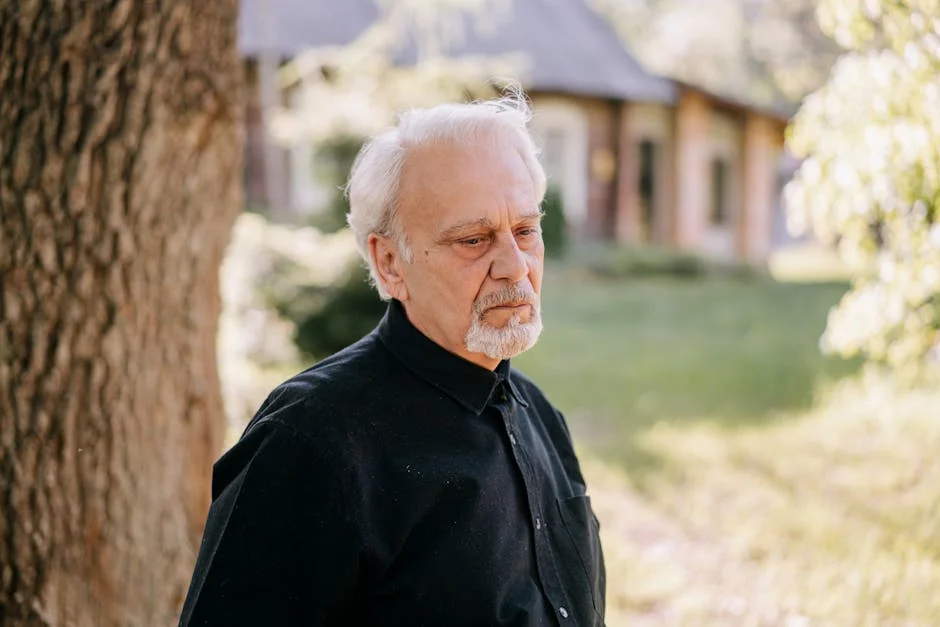Let’s be real, facing hair loss is tough, regardless of who you are.
For Black men, the impact can be especially significant, both culturally and personally.
I remember when I first noticed my hairline receding – a knot of anxiety tightened in my stomach.
It’s a sensitive topic, but it’s one we need to talk about.
So, if you’re here wondering how to stop hair loss black male, know you’re not alone.
This isn’t just about aesthetics; it’s about reclaiming confidence and well-being.
This guide isn’t just for show; it’s from experience, and I’m here to share what I’ve learned.
Before we dive into solutions, let’s be clear: hair loss affects us differently. The patterns, the causes, and the remedies can vary.
But the good news is, there’s a lot we can do. This isn’t a definitive cure-all – more of a starting point to a healthier head of hair.
Knowing the’why’is crucial when considering how to stop hair loss black male.
Androgenetic alopecia (male-pattern baldness) is a common culprit, often linked to genetics and hormones.
However, in Black men, other factors play a huge role.
Traction alopecia, caused by tight hairstyles like braids, twists, or locs, is a significant cause.

Traction alopecia, caused by tight hairstyles like braids, twists, or locs, is a significant caus…
Then there’s central centrifugal cicatricial alopecia (CCCA), which is more prevalent in Black women but can also affect men, leading to permanent scarring and hair loss.
Other underlying medical conditions, like autoimmune diseases or infections of the scalp, can contribute to hair loss.
Dietary deficiencies, stress, and certain medications can also be triggers. That’s why a solid understanding of your own body is key.
You can even try taking a look at the beginners guide to hair care.
Okay, so you’re thinking, “Great, but *how* do I actually stop this?” Here are some effective strategies, tailored to address different types of hair loss, and some specific tips for Black men.
Remember, consistency is king, and it’s a journey. There’s no overnight miracle, unfortunately.
This is fundamental. If you’re wearing tight hairstyles, consider loosening them or alternating them. Give your scalp a break.
Embrace protective styles that are gentle on your hair. Frequent washing with moisturizing shampoos can keep your scalp and hair healthy.
Avoid harsh chemicals and excessive heat. Regular deep conditioning treatments can also help keep the hair healthy.
I know, I know, another lifestyle suggestion! But seriously, diet and stress management play a massive part.
Eat a balanced diet rich in protein, vitamins (especially D and B), and minerals.
Consider the addition of foods like spinach, salmon, and eggs to help promote hair growth.
Prioritize sleep and practice stress-reducing techniques, like meditation or yoga. Even small changes can make a big difference.

Prioritize sleep and practice stress-reducing techniques, like meditation or yoga. Even small cha…
There are effective over-the-counter options. Minoxidil (Rogaine) can be helpful, though it requires consistent use.
However, for some Black men, they may require more potent topical treatments than these.
Talk to a dermatologist to know whether this is a good option for you.
Before diving into these options, do a patch test to ensure you’re not allergic.
This is critical, especially if you’re unsure about the cause of your hair loss.
A specialist can accurately diagnose the problem and recommend personalized treatments.
They can also provide prescription medications like finasteride (Propecia), which blocks the hormone DHT (a major contributor to hair loss) but be sure to discuss the side effects with them.
I have found the help of one made a huge difference in my own battle, so do not skip this step if you can avoid it.
Hair transplants are an option. They’re a bigger commitment and expense, but they can offer permanent solutions.
Modern techniques have significantly improved, offering more natural-looking results.
This is definitely something to consider after trying the other methods.
The textured hair of Black men has unique needs. Our hair is more prone to breakage and dryness. Products formulated for this hair type are critical.
Seek out shampoos, conditioners, and styling products that are designed for your hair type.

Seek out shampoos, conditioners, and styling products that are designed for your hair type.
In addition, consider using natural oils for hair to protect and nourish your scalp.
Research shows that certain oils, like coconut, and argan oil, are amazing for hair health.
Avoiding tight hairstyles is non-negotiable if traction alopecia is a concern.
If you love braids or locs, make sure they’re not pulled too tightly and give your hair a break.
Listen to your body: if you feel pain or tension, it’s a sign to adjust your style.
Let’s bust some myths, shall we? One common one is that washing your hair frequently causes hair loss.
Unless you’re using aggressive products, washing your hair regularly can actually benefit your scalp health by removing build-up.
Another misconception is that all hair loss can be “cured.” Sometimes, the best we can do is manage the condition and slow its progression.
Also, quick fixes. There’s no magic bullet that will give you instant results. Be patient and stay consistent.
Preventative care is crucial, as with any health issue. Incorporate healthy habits early on.
If you start noticing changes in your hair – thinning, patches, a receding hairline – don’t wait. Take action.
See a dermatologist or trichologist at the first sign of trouble. Maintain a balanced diet, manage stress, and choose hairstyles carefully.
Early intervention offers the best chance of success when it comes to answering how to stop hair loss black male.

Early intervention offers the best chance of success when it comes to answering how to st…
Q: Is hair loss in Black men always genetic?
A: No, while genetics play a significant role, particularly with male-pattern baldness, hair loss in Black men is often caused by other factors.
Traction alopecia from tight hairstyles and CCCA are very common, and these are lifestyle and health related rather than genetically predestined.
Q: Can stress cause hair loss?
A: Absolutely. Stress is a major trigger for a type of hair loss known as telogen effluvium.
This involves increased shedding due to the body’s response to stress.
Managing stress, through techniques like meditation, yoga, and mindfulness, can help to combat this.
Q: What are the best hairstyles to prevent hair loss?
A: Loose protective styles are the best. Opt for styles that do not pull at the hair or put tension on the scalp.
Braids, twists, or locs should be done loosely and should not be in the same style for more than six to eight weeks.
Consider alternating protective styles with styles that allow the hair to be free and easier to manage. Q: Is there a’best’hair loss treatment?
A: Not necessarily. The most effective treatment depends on the individual and the type of hair loss they’re experiencing.
This is why seeing a dermatologist for a proper diagnosis is so important.

This is why seeing a dermatologist for a proper diagnosis is so important.
A combination of lifestyle changes, topical treatments, and, in some cases, medical interventions, often works best.
Confronting hair loss can be daunting, but it doesn’t have to define you.
Taking proactive steps, understanding the causes, and seeking professional help are all critical. This isn’t a problem you have to face alone.
Remember, it’s a journey, not a destination. Start today. The journey of how to stop hair loss black male is a personal one.
Embrace it, be patient, and celebrate the small victories. More importantly, take control of your health.
Your hair is a part of you. Take care of it. Take care of yourself. Let’s move forward together.
Ready to take the next step? Join our newsletter for weekly health tips!
No, while genetics play a significant role, particularly with male-pattern baldness, hair loss in Black men is often caused by other factors.
Traction alopecia from tight hairstyles and CCCA are very common, and these are lifestyle and health related rather than genetically predestined.
Absolutely. Stress is a major trigger for a type of hair loss known as telogen effluvium.
This involves increased shedding due to the body’s response to stress.
Managing stress, through techniques like meditation, yoga, and mindfulness, can help to combat this.
Loose protective styles are the best. Opt for styles that do not pull at the hair or put tension on the scalp.
Braids, twists, or locs should be done loosely and should not be in the same style for more than six to eight weeks.
Consider alternating protective styles with styles that allow the hair to be free and easier to manage.
Not necessarily. The most effective treatment depends on the individual and the type of hair loss they’re experiencing.
This is why seeing a dermatologist for a proper diagnosis is so important.
A combination of lifestyle changes, topical treatments, and, in some cases, medical interventions, often works best.




